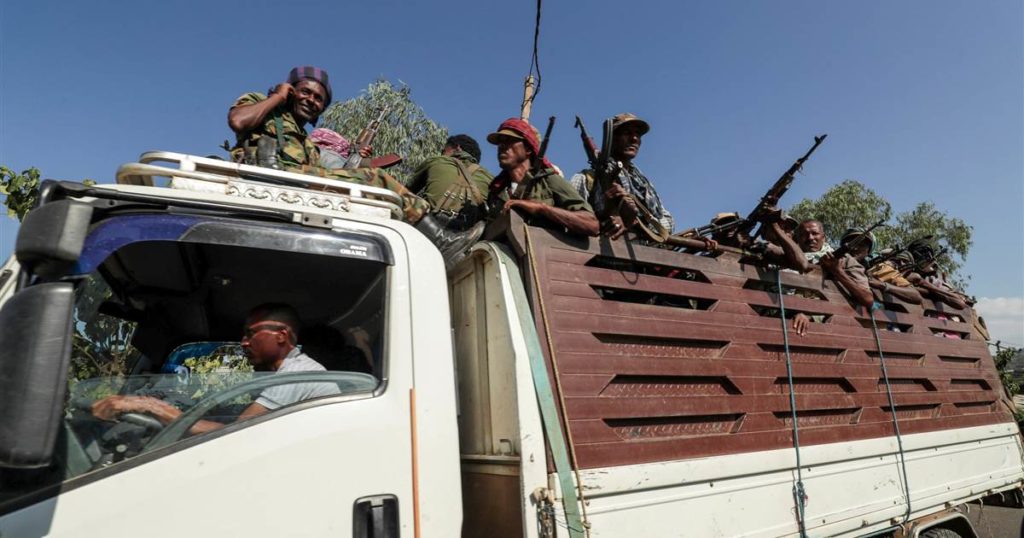International aid workers who have left Ethiopia’s Tigray region in recent days have described a chaotic and dynamic situation with large numbers on the move to avoid fighting, choking roads already full of military vehicles, the Guardian reports.
Federal troops are involved in a massive offensive aimed at removing the Tigray People’s Liberation Front from power in the northern region, and intensifying rhetoric from both sides has reinforced fears of a long and bloody conflict.
One aid worker, who spoke to the Guardian on condition of anonymity, said: “There are thousands of people trying to get away from the fighting, and the local administration is trying to house them in schools and public buildings, or disperse them into villages or wherever they might have relatives.”
Others described a recruitment drive in Tigray, with veterans re-enlisting and “widespread mobilisation”.
“There is a strong nationalistic fervour among the Tigrayans so I don’t think the Tigrayans are just going to yield. There is a big ethnic element here that is clearly escalating,” said a second aid worker.
One flashpoint is between Tigrayans and Amharans from the neighbouring province. Amharan security forces and militia are fighting alongside government troops as they advance into Tigray.
In a statement issued on Wednesday headlined “Distinguishing [the] TPLF from the People of Tigray”, the Ethiopian government denounced “mischaracterisations” suggesting that the military operation had any ethnic bias, and was simply aimed at maintaining the unity of Africa’s second most populous country.
“Our vision of Ethiopia is of a multinational society … Our common heritage and destiny is strong enough to overcome the threat posed by the divisive, sinister and toxic machinations of the TPLF clique,” it said.
However, Reuters reported that Ethiopian peacekeepers stationed in Somalia have disarmed between 200 and 300 of their Tigrayan colleagues.
Tigray’s leadership said on Wednesday it would never surrender to federal troops. “Tigray is now a hell to its enemies,” said Debretsion Gebremichael, the leader of the TPLF. “Let us mobilise our entire capacity … As long as the army of the invaders is in our land, the fight will continue.”
A statement from the office of the prime minister, Abiy Ahmed, promised to put an end to the “deadly crime spree” of Tigray’s “disgruntled, reactionary and rogue” leaders.
Officials said federal forces controlled multiple towns in southern Tigray and had advanced to within roughly 80 miles of Mekelle, but with communications cut to the region and no media allowed access it is impossible to confirm the claims.
Eyewitnesses described government air raids around Mekelle and elsewhere in Tigray, though were unable to say which targets had been hit. There have been reports of civilian casualties from the air strikes and artillery bombardments, with hundreds feared dead.
